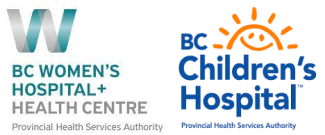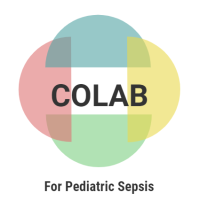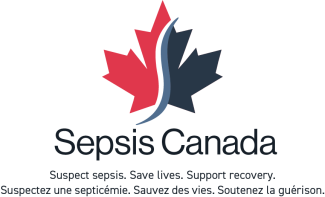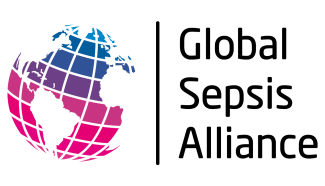Institute for Global Health at BC Children's & Women's

The Institute for Global Health at BC Children’s and Women’s Hospital (IGHCW) has a shared vision and strategy centred around a commitment to equity in health globally. The health and wellbeing of children, women, and people everywhere, independent of geographical borders, is vital to the health of the world. The BC Children’s and Women’s Hospital is recognized as one of the world’s foremost children’s and women’s health-care institutions, with a rich history in global health innovation and strengthening local and international capacity through the exchange of knowledge, skills, and appropriate technologies. IGH's members are committed to implementing the most effective interventions for improving the health of communities and often integrate advocacy, education, and capacity building efforts in local and global contexts.
Child Health BC

Child Health BC functions as a Health Improvement Network, uniting provincial knowledge, regional leadership, and collaboration with community and patient partners. Its primary goal is to identify areas with potential for enhancement and drive province-wide solutions, ultimately enhancing the overall delivery and experience of healthcare services for children and youth across British Columbia.
In collaboration with the Action on Sepsis Research Cluster, Child Health BC developed the Provincial Pediatric Sepsis Toolkit. This toolkit aims to offer best practice recommendations for recognizing and treating pediatric sepsis, along with clinical support tools for Emergency Departments and Urgent Care Centers. It also supports standardized pediatric sepsis care across British Columbia and shares parent/caregiver materials for cases of suspected or diagnosed sepsis in children. Learn more about the toolkit on the Child Health BC website.
Pediatric Sepsis Data CoLaboratory (Sepsis CoLab)

The Sepsis CoLab is a partnership between the Institute for Global Health at BC Children's and Women's Hospital (formerly Centre for International Child Health) and the World Federation of Pediatric Intensive & Critical Care Societies. It is an international data-sharing collaborative network that aims to address the high burden of pediatric sepsis mortality and morbidity globally.
World Federation of Pediatric Intensive and Critical Care Societies (WFPICCS)

WFPICCS is a global alliance dedicated to improving pediatric critical care worldwide. It collaborates, educates, and conducts research to enhance outcomes and support critically ill children, including those suffering and recovering from sepsis. Its mission is to promote excellence in pediatric critical care across the globe.
Sepsis Canada

Sepsis Canada – created and funded by the Canadian Institutes of Health Research (CIHR) – is a single nationally coordinated research network to further understand the causes of sepsis, improve the prevention, detection, and management of sepsis, and support recovery and rehabilitation from this disease. Its network brings together 289 experts from different disciplines working collaboratively on various projects under an integrated and unified program of research.
Canadian Sepsis Foundation

The Canadian Sepsis Foundation (CSF) is a non-profit organization comprised of dedicated volunteers, Critical Care Specialists, Researchers, and patient partners. Their mission revolves around raising public awareness concerning the seriousness and preventability of sepsis incidents and fatalities in Canada.
Sepset Biosciences Inc.

Sepset Biosciences is developing the Sepset-ER blood test for hospitals, which rapidly identifies patients at high risk of severe sepsis and organ failure. With quicker results (within 1-2 hours), physicians can make better treatment decisions, improving patient outcomes and hospital efficiency.
Centre for Heart Lung Innovation

The Centre for Heart Lung Innovation (HLI), formerly recognized as iCAPTURE and the James Hogg Research Centre, is a diverse institution dedicated to tackling critical matters in heart, lung, and critical care diseases. Located at St. Paul's Hospital, a University of British Columbia teaching hospital under Providence Health Care, the HLI operates as a translational research center. It harnesses fundamental molecular and cellular research findings to devise novel methods for preventing and treating human diseases, all while promoting seamless integration with clinical research.
Clarity Foundation

Clarity Foundation is a non-profit organization committed to combatting misinformation in modern media across many sectors, including healthcare, technology, and politics. Clarity Foundation promotes the Action on Sepsis Research Cluster's efforts to raise awareness for sepsis care and research.
Global Sepsis Alliance

The GSA brings together 6 regional sepsis alliances to strengthen collaboration with local stakeholders, regional governments, and regional WHO offices. The objective is to implement essential performance indicators outlined in the WHA Sepsis Resolution, which was adopted by the WHO in May 2017. The 6 sepsis alliances are: the African Sepsis Alliance (ASA), the Asia Pacific Sepsis Alliance (APSA), the Eastern Mediterranean Sepsis Alliance (EMSA), the European Sepsis Alliance (ESA), the Latin American Sepsis Institute (LASI), and the North American Sepsis Alliance (NASA).